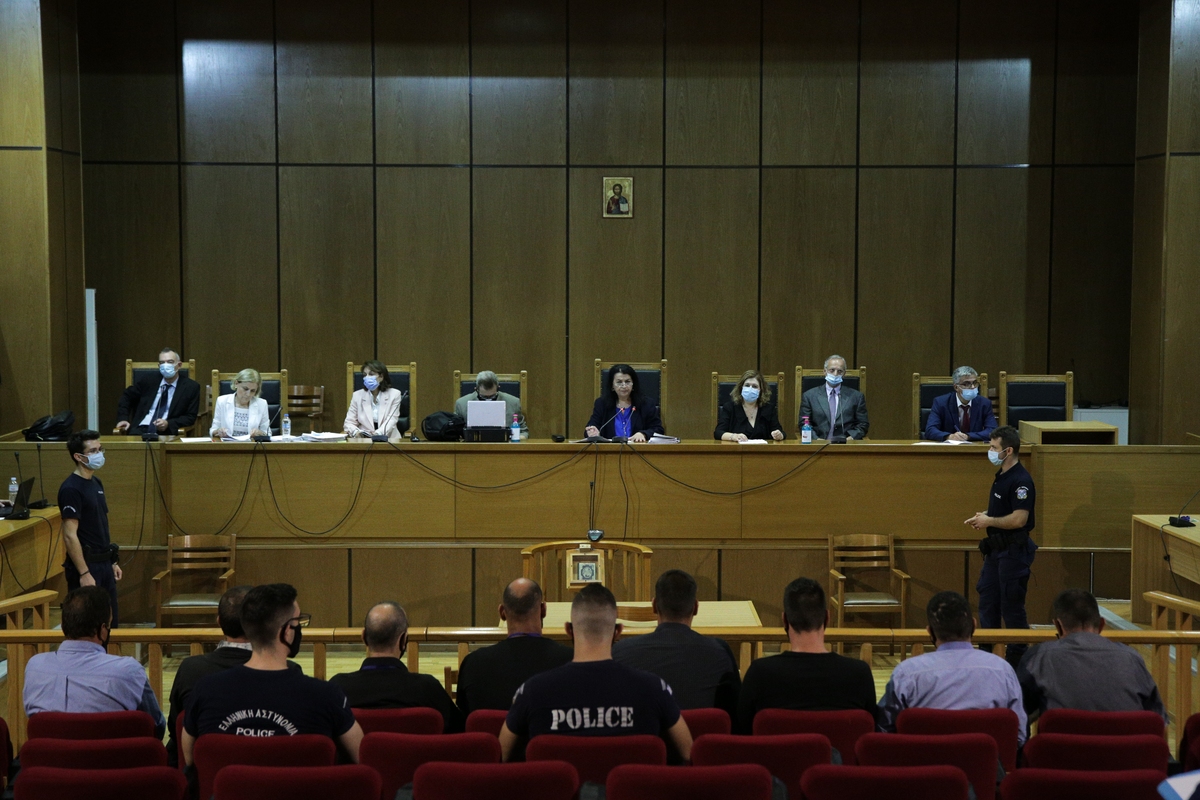
The Ministry of Justice recently introduced a provision that prohibits “total or partial transmission in any way, especially via television, radio, or the internet,” a move the lawyers’ group contends could bar journalists from courtrooms even if they simply use transcription programs without recording or videotaping. The statement urges judges and prosecutors to interpret the new provision strictly in accordance with Article 93, clause 2 of the Constitution, which mandates public court sessions unless privacy or moral concerns dictate otherwise.
The announcement from the Athens Lawyers’ Alternative Intervention
The recent amendment banning journalistic coverage of lawsuits is seen as a violation of the principles of transparency and public scrutiny in the judicial process. According to the Athens Lawyers’ Alternative Intervention, this broad and vague provision could be misinterpreted to prohibit the presence of journalists and observers in courtrooms entirely.
The new provision, articulated in Law 5119/2024, states: “Total or partial transmission in any way, in particular through television, radio, internet, and generally any technological means, as well as filming, videotaping, sound recording, and transcription through special software that converts oral speech into writing, is prohibited in criminal, civil, or administrative courts.” Exceptions are allowed only if the prosecutor, parties involved, and the court agree on the essential public interest.
Previously, the law was more precise, allowing the court to permit transmission if all parties agreed and there was a significant public interest. The new law, however, imposes a prison sentence of up to three years and fines ranging from €20,000 to €200,000 for violations.
Concerns over the impact on public trials
The Athens Lawyers’ Alternative Intervention highlighted a recent instance where the Three-member Criminal Court of Mytilene used this provision to prohibit the presence of trial observers during the racist pogrom case against refugees in Sapphos Square. Observers have traditionally provided real-time updates from the courtroom, ensuring transparency and public awareness, without using audio or video recording devices.
Historically, observatories like Golden Dawn Watch and ZackieOh Justice Watch have played a crucial role in high-profile cases by ensuring public access to trial proceedings through written reports. The government’s new provision, however, seeks to limit this transparency, undermining the fundamental principle of public trials.
Call for repeal and judicial restraint
The Athens Lawyers’ Alternative Intervention is calling on the government to repeal this restrictive provision immediately. They also urge bar associations and journalism organisations to condemn the amendment and demand its repeal. In the meantime, they call on judges and prosecutors to apply the provision narrowly, in line with constitutional guarantees, and to resist efforts to stifle press freedom and public oversight.
In their statement, they emphasise that written journalistic coverage and courtroom observation do not constitute audio or video transmission and should not be restricted. The presence of journalists and the public’s right to know are essential components of a fair and transparent judicial process, protected by both the Greek Constitution and international human rights standards.
______________________________________________
Are you seeking news from Greece presented from a progressive, non-mainstream perspective? Subscribe monthly or annually to support TPP International in delivering independent reporting in English. Don’t let Greek progressive voices fade.
Make sure to reference “TPP International” and your order number as the reason for payment.